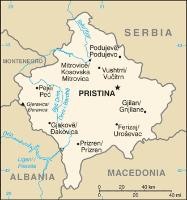Kosovo's Feb. 17 declaration of independence places the Russian government in an awkward position. Neither Moscow's nor Belgrade's pre-declaration threats prevented Pristina's parliament from voting 109-0 in favor of severing ties with Serbia. Actually implementing the threatened retaliatory measures, however, could easily backfire and seriously damage Russian interests. Most NATO governments likewise decided to back Kosovo's independence despite Russian warnings that Moscow might respond by promoting the independence of other separatist regions in Europe. For months, Western governments have argued that, given the deep divisions separating the parties involved in the Kosovo status negotiations, delaying action would not improve the prospects for a settlement and might only increase the risks of ethnic violence. Nevertheless, Russian opposition prevented the U.N. Security Council (UNSC) from adopting the recommendations on Kosovo's future status offered by U.N. Special Envoy Martthi Ahtisaari last year in his Comprehensive Proposal. Instead, Moscow coerced U.N. consent to hold another round of negotiations between Serbian and Kosovar Albanian representatives. These discussions, conducted from August to December under the auspices of the Kosovo Contact Group by an EU-American-Russian Troika, made little progress. Kosovo's political leaders then announced their intent to declare independence in early 2008 even without the approval of the UNSC or the Serbian government, which was prepared to offer Pristina substantial autonomy but not independence.
Angry Moscow Ponders Next Move After Failing to Block Kosovo Independence

